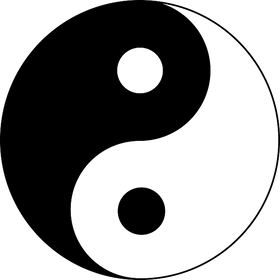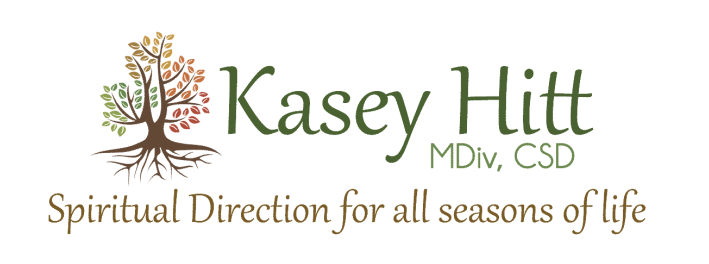 Our self-talk can be mean. In clients young and old, I notice how they often beat themselves up for not living up to their spiritual ideals. In their voices I hear the longing to “be perfect as your heavenly Father is perfect” (Matthew 5:48). And I also hear the guilt, self-blame, and even name-calling that result when falling short. I listen with empathy. Why? I resonate with the 1 on the Enneagram (those who can be perfection-driven and overly familiar with an inner critic) and I grew up in a culture expecting high-level morality as a reflection of being a "good girl" and following Jesus, so I get it. One of the reasons I love being a Spiritual Director is the experience and wanting others to experience the gift of new eyes to see. For instance, we will always fall short and give the inner critic plenty of fodder if we read that scripture in Matthew in terms of moral perfection rather than wholeness or “shalom.” Shalom is Hebrew (the language of the Jewish lineage of Jesus) for “peace, wholeness, & completeness.” The Greek language used in the writing of the New Testament chose "perfect" as the translation of "teleios." Another look into the original language reveals that it has multiple meanings—“perfect, whole, & complete.” Reading this same line from Matthew, substitute, “perfect” with “whole” and notice your inner response: Be whole as your heavenly Father is whole. Being whole includes our imperfections (which, like the Chinese symbol of yin & yang, includes both darkness and light to complete the circle). God is fully with us in both. The Psalmist discovered this in wondering if he could hide from God's Presence, but finally declared, "for darkness is as light to you" (Psalm 139:12). The prophet Isaiah, went a step further with God proclaiming that “I form the light and create darkness” (45:7). We humans often do not know which is which and not seeing from a deeper, nondual, perspective, label one good (light) and the other bad (darkness). The natural world can teach us how light and dark are interrelated, complementary parts of Creation. Be outside on a blistering hot day without any shade and you will long for the goodness of darkness and bemoan how too much light is bad. In the same way, we rush to label our own imperfections as “bad.” But Saint Paul had a different experience, he saw an inseparable relationship between his imperfections and God’s strength. In II Corinthians 12:9, he exclaims “I will boast all the more gladly about my weaknesses, so that Christ’s power may rest on me. That is why, for Christ’s sake, I delight in weaknesses, in insults, in hardships, in persecutions, in difficulties. For when I am weak, then I am strong.” More times than I can count, I have experienced God working through my weaknesses and failures. Looking back I can also see how God was present with me in darkness, though I may have been unable to see it at the time. As I recall these stories, I soften toward myself and my self-talk reflects the gentleness of the Spirit of God. I imagine the same is true of you. As you look back at times of darkness, weakness and failure, what goodness can you find that came from it or occurred right in the middle of it? Perhaps you are being given new eyes to see how the Spirit has been (and is) working in and through every part of you—that’s wholeness. That’s the perfection of God. And knowing this, perhaps you soften toward and speak to yourself with gentleness—and experience “Shalom.” ___________________ Sometimes it takes the gentle guidance of a Spiritual Director to help you see your own story and the Sacred Presence in a new way. To find out more about Spiritual Direction, go here. Comments are closed.
|
AuthorKasey is a scarf, ball and club juggling spiritual director just outside of Nashville, TN. Play helps her Type-A, Enneagram 1 personality relax, creating space for poetry and other words to emerge. She also likes playing with theological ideas like perichoresis, and all the ways we're invited into this Triune dance. Archives
January 2024
Categories
All
|
By clicking “Sign up for E-News” I consent to the collection and secure storage of this data as described in the Privacy Policy. The information provided on this form will be used to provide me with updates and marketing. I understand that I may modify or delete my data at any time.

 RSS Feed
RSS Feed

